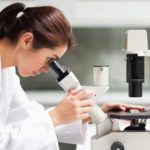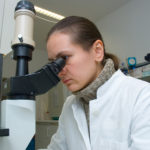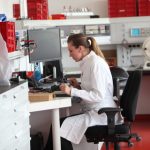
University of Bath discovery may help combat chronic inflammation
Researchers from the University of Bath’s Department of Pharmacy & Pharmacology have made an important discovery that might lead to novel therapies to combat chronic inflammation (University of Bath, 2017). The work, jointly funded by the Biotechnology and Biological Sciences Research Council (BBSRC) and Wellcome Trust, and published in the Journal of Immunology, focuses on … Continue reading University of Bath discovery may help combat chronic inflammation

£21m NIHR Bristol Biomedical research Centre launches
A £21m National Institute for Health Research (NIHR) Biomedical Research Centre (BRC) in Bristol will launch this week (University of Bristol, 2017). The research centre, awarded to University Hospitals Bristol NHS Foundation Trust (UH Bristol) and the University of Bristol by the NIHR, will conduct cutting edge research to develop new, ground breaking treatments, diagnostics, … Continue reading £21m NIHR Bristol Biomedical research Centre launches

Autistic children make similar mistakes recognising faces as children who don’t have autism
Young people with autism spectrum conditions have difficulties recognising and distinguishing between different facial expressions, according to research from one of the largest studies to look at emotion recognition in children and adolescents on the autistic spectrum (University of Bristol, 2017). The University of Bristol findings have been published in the Journal of Autism and … Continue reading Autistic children make similar mistakes recognising faces as children who don’t have autism

Study finds no “weekend admission effect” for elderly patients with broken hips on the NHS
New research has found NHS patients admitted to hospital at the weekend with a hip fracture are at no greater risk of death compared to patients admitted on weekdays (University of Bristol, 2017). In fact, the risk of death during the hospital stay was lower at the weekend than in the week. Using data collected … Continue reading Study finds no “weekend admission effect” for elderly patients with broken hips on the NHS

Immortalised cell lines could make red blood cell manufacture more efficient
University of Bristol researchers have generated the first immortalised cell lines which allow more efficient manufacture of red blood cells (University of Bristol, 2017). The team, from the University of Bristol and NHS Blood and Transplant, were able to manufacture red blood cells in a more efficient scale than was previously possible. The results, published … Continue reading Immortalised cell lines could make red blood cell manufacture more efficient

Mending the youngest broken hearts
Researchers have shown stem cells from the umbilical cord may hold the key to a new generation of graft and could reduce the number of surgeries required to treat young children born with certain types of congenital heart disease (University of Bristol, 2017). Congenital heart disease is the most common type of birth defect. In … Continue reading Mending the youngest broken hearts

No meaningful benefit using antibiotics for mildly infected eczema in children
Estimates suggest that 40% of eczema flares are treated with topical antibiotics, but findings from a study led by Cardiff University suggest there is no meaningful benefit from the use of either oral or topical antibiotics for milder clinically infected eczema in children (Cardiff University, 2017). Eczema affects around one in five children in the … Continue reading No meaningful benefit using antibiotics for mildly infected eczema in children

Wearable robotic tools developed for surgery
A team of researchers led by the University of the West of England (UWE Bristol) is developing a wearable robotic system for minimally invasive surgery, that will offer surgeons natural and dexterous movement as well as the ability to sense, see, control and safely navigate through the surgical environment (UWE Bristol, 2017). The €4m research … Continue reading Wearable robotic tools developed for surgery

Synthetic receptor mimics the the way cells talk to the world around them
Researchers from the University of Bristol and the University of Manchester have found a way to mimic the way cells in living organisms talk to the world around them by creating a synthetic receptor which can respond to chemical signals just like its natural equivalent (University of Bristol, 2017, University of Manchester, 2017). Professor Jonathan … Continue reading Synthetic receptor mimics the the way cells talk to the world around them

High blood pressure can be reduced with deep brain stimulation
A Bristol team has used a deep brain stimulation technique to dramatically reduce a woman’s high blood pressure, the first time in the world the procedure has been carried out for hypertension (University of Bristol, 2017). The case led by North Bristol NHS Trust consultant neurosurgeon Nik Patel working alongside researchers at the University of … Continue reading High blood pressure can be reduced with deep brain stimulation








